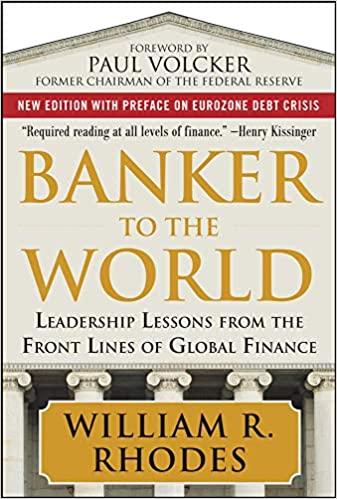Question
Chapter 3 concludes with an article titled Sustainability, ROA, and the Golden Rule. Please read that article and discuss why it may be profitable in
Chapter 3 concludes with an article titled "Sustainability, ROA, and the Golden Rule." Please read that article and discuss why it may be profitable in the long-term to operate a firm in a sustainable manner. Give examples of sustainability practices being used in industry today and discuss their profitability or lack thereof.
The article: "Sustainability, ROA, and the Golden Rule
Perhaps sustainability isn't the first word that comes to mind when someone thinks about the garbage business. However, today's waste industry leaders not only develop sanitary landfills with synthetic liners and ground water monitoring wells, but they are often at the forefront of community recycling and renewable energy efforts. When Lonnie Poole started Waste Industries in 1970, he didn't know that the company would grow to be one of the country's largest waste companies, but like most entrepreneurs, he did believe that he could build a business for the long haul. Focused on a commitment to service, Poole knew that his company had to find ways to offer service options that were both economically viable and environmentally sustainable. Sometimes projects provided an adequate near-term return on assets (ROA), and they also made sense from a sustainability perspective. Other times, doing the right thing from a long-term sustainability perspective meant Waste Industries needed to find a way to overcome short-term financial considerations. Take the company's recycling effort as an example. Waste Industries has been engaged in recycling since the 1970s. From an ROA perspective, it was hard to justify the firm's recycling efforts. At first, there was no market for the recyclables. Instead of selling recycled paper, the firm had to pay paper companies to haul recycled paper away. Over time, Waste Industries' investments in sustainability began to pay off. Due to their early investments, today an infrastructure has developed to recycle more waste at lower costs. Based purely on a short-run ROA, the firm's long-term commitment was not justified, but Poole's commitment to recycling and other sustainable practices were part of a wider corporate culture focused on treating customers, employees, and the broader community with respect. Now business researchers are finding that Poole may have simply been ahead of his time. When Harvard researchers examined the impact of corporate sustainability initiatives on long-term firm performance, they discovered both higher ROA and higher ROE (return on equity) for firms whose executives promoted sustainability within their firms. Philosophers and religious leaders have long touted the golden rule as a basic ethical code, which states one should do to others what they would wish done to themselves. Like many successful business people, Poole believed sustainability meant making a positive difference in the communities his company served, enriching the lives of employees, and forging meaningful relationships with vendors and suppliers. In the long run, these values paid off. Perhaps this is why a basic rule for ethical behavior is called golden.
Step by Step Solution
There are 3 Steps involved in it
Step: 1

Get Instant Access to Expert-Tailored Solutions
See step-by-step solutions with expert insights and AI powered tools for academic success
Step: 2

Step: 3

Ace Your Homework with AI
Get the answers you need in no time with our AI-driven, step-by-step assistance
Get Started


